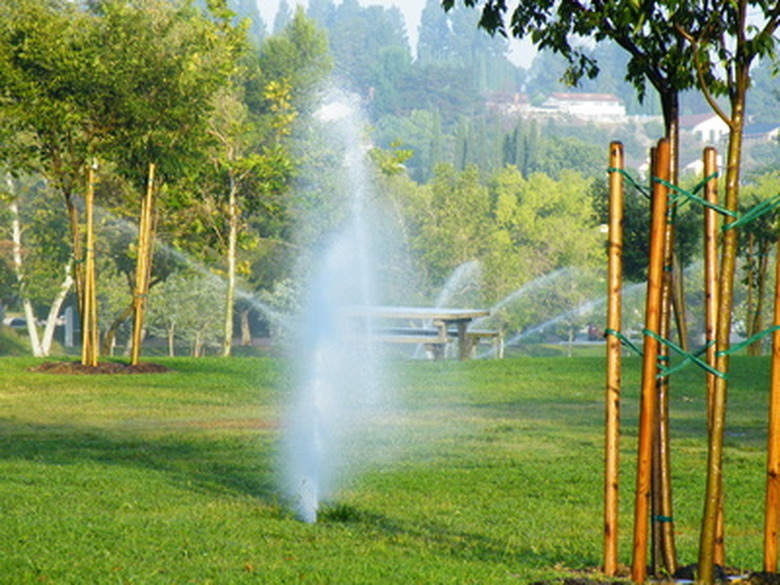How The pH Of Water Affects Plant Growth
The pH of water affects the growth of plants by changing soil pH and interfering with chemicals applied to plants. Many plants, including vegetables, and most trees and shrubs, adapt to a wide variety of pH soil levels, and probably won't be affected. A few, though, such as heathers, holly and rhododendrons, have very specific pH needs. Special attention to pH is required for these plants to stay healthy.
Background
The pH level of water refers to the balance between acidic hydrogen ions and basic hydroxide ions. When the two are fairly equally balanced at 7.0, the water is said to have a neutral pH. A pH level above 7.0 is alkaline; a pH level below 7.0 is acidic.
- The pH of water affects the growth of plants by changing soil pH and interfering with chemicals applied to plants.
Nutrient Absorption
Plants need several nutrients to grow, and they get those nutrients by absorbing them through the soil. When water with a high or low pH is used regularly to irrigate crops, it may slowly change the pH level of the soil, making nutrient absorption more difficult for plants. Macronutrients, including nitrogen, phosphorus and potassium, are the major nutrients plants need to grow and are less available for plants when soils are acidic, or have a low pH. Micronutrients, according to North Carolina Agriculture, are used in smaller amounts by plants, and are less available in alkaline soils, or soils with a high pH. These micronutrients include boron, copper, manganese and iron.
Chemical Absorption
The solubility of some chemicals, such as fertilizers, insecticides and fungicides, is affected by the pH of water, according to the Blackmore Co. The lower the pH level of the water, the less soluble these products are, decreasing their effectiveness.
- Plants need several nutrients to grow, and they get those nutrients by absorbing them through the soil.
- When water with a high or low pH is used regularly to irrigate crops, it may slowly change the pH level of the soil, making nutrient absorption more difficult for plants.
Symptoms
Chlorosis is caused by a nutrient deficiency and causes yellowing leaves. Left untreated, the entire plant will yellow and eventually die. Chlorosis may be caused by soil compaction or root damage but is usually caused by high pH levels in the soil, according to the University of Illinois. Iron deficiencies affect the younger, outer leaves of a plant first. Manganese and zinc deficiencies affect the older, inner leaves.
Solutions
City water is often more alkaline than rainwater, but may vary in alkalinity from year to year. A soil test or water test can help determine the pH level of both. Alkaline soils may be treated with an application of citric acid at the rate of 0.2 grams citric acid per gallon of water. Also, 1 tsp. vinegar added per gallon of water may raise the acid level, although results may be inconsistent. Acidic fertilizers, iron chelate and peat moss or pine needle mulches may lower the soil's pH level.
- Chlorosis is caused by a nutrient deficiency and causes yellowing leaves.
- A soil test or water test can help determine the pH level of both.
Gardeners with acidic soil may add lime to raise the pH. Fertilizers high in ammoniacal nitrogen are acidic and should be avoided. Organic fertilizers, such as compost, manure and fish emulsion are better choices.
